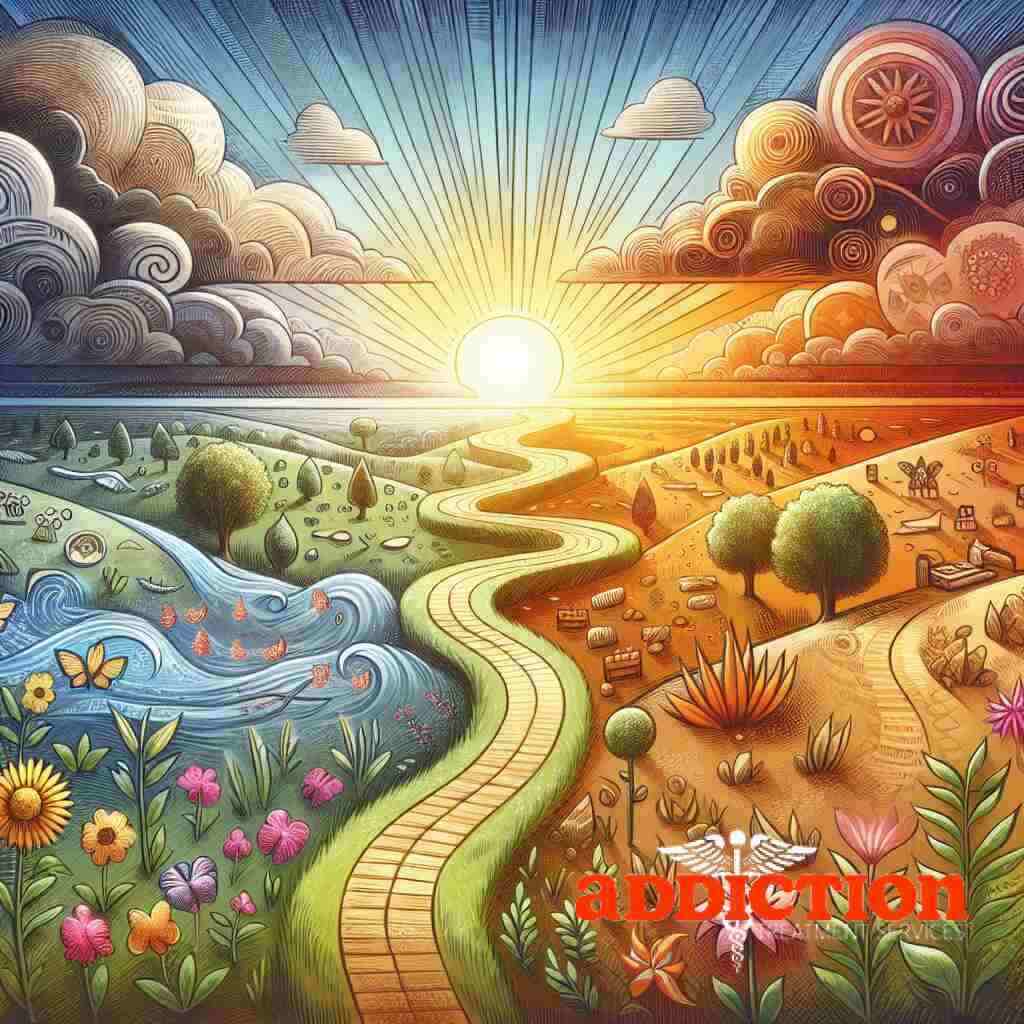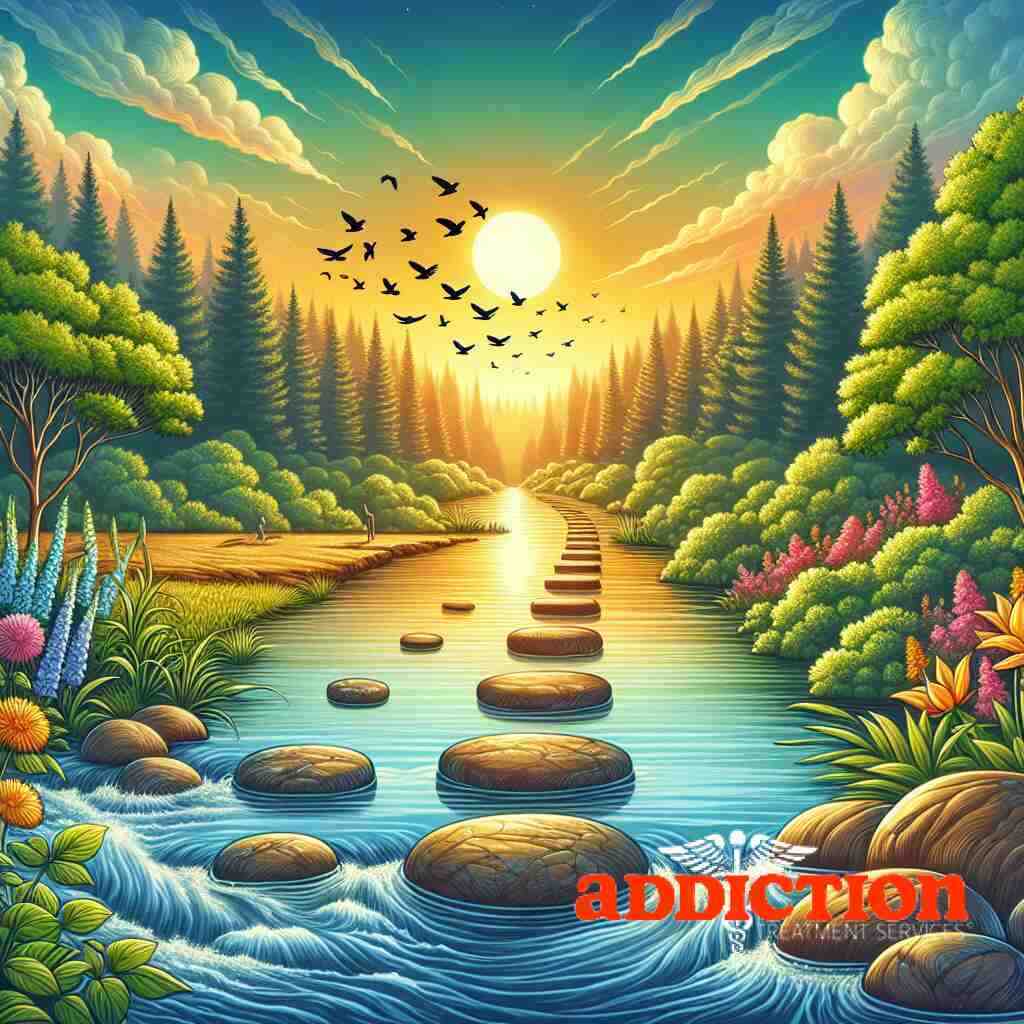 Posted On: 08/09/2023
Posted On: 08/09/2023Unveiling the Path to Recovery
The Importance of Local Drug Rehabs
Local drug rehabs play a pivotal role in addiction recovery, providing essential support and services within one’s community. They offer personalized care and cater to the unique needs of individuals struggling with substance use disorders. Accessible locations make it easier for individuals to commit to their recovery journey, thereby increasing the chances of successful rehabilitation. Moreover, local facilities often build strong partnerships with area-based organizations and resources, further strengthening their support network. Understanding the value of proximity, these centers emphasize tailored approaches, ensuring that treatment aligns with cultural and geographical nuances that affect recovery.
Understanding Addiction Treatment Services
Addiction Treatment Services is dedicated to easing the overwhelming burden of finding suitable treatment options. They act as a comprehensive guide, featuring a directory of addiction treatment services near you. These services aim to address the complexity of addiction by offering a spectrum of treatment options, from detoxification and withdrawal management to holistic healing. By providing detailed insights into various treatment modalities, they empower individuals to make informed decisions about their recovery journey. Their platform highlights the nuances and effectiveness of different methodologies, ensuring that users are equipped with the knowledge necessary to embark on their recovery path confidently.
Navigating the Addiction Treatment Directory
The Addiction Treatment Services directory offers a streamlined navigation experience, allowing users to locate reputable addiction treatment centers in their vicinity easily. This user-friendly interface helps individuals quickly identify drug treatment centers in the District of Columbia, among other locations, and evaluate the services they offer. By categorizing facilities based on the types of treatments provided, such as outpatient or residential options, the directory simplifies the decision-making process. Users can further narrow their search by utilizing filters that align with their specific needs and preferences, ultimately aiding in the selection of the most suitable rehab center. As a critical resource in the recovery process, this directory fosters a sense of empowerment, guiding users toward personalized and effective solutions tailored to their unique circumstances.
Holistic Approaches to Overcome Addiction
Exploring Integrative Rehabilitation Options
Integrative rehabilitation options offer a holistic approach to overcoming addiction by focusing on the entire self rather than just the substance use disorder. Many local drug rehab centers emphasize combining traditional and alternative therapies to create effective addiction treatment plans that are personalized to each individual’s needs. These programs might include therapies such as acupuncture, yoga, and mindfulness practices, which are designed to complement conventional medical and psychological treatment techniques. By weaving these diverse methodologies together, holistic addiction treatment approaches strive to heal the mind, body, and spirit in unity. Ultimately, these integrative options empower individuals to achieve a deeper, more sustainable transformation in their recovery journey.
The Role of Spiritual Healing in Recovery
Spiritual healing plays a crucial role in the recovery process for many individuals seeking addiction recovery services. This aspect of treatment focuses on nurturing an individual’s spirit and fostering a sense of purpose and connection. Engaging in activities such as meditation, spiritual counseling, and participation in community or faith-based groups can significantly enhance one’s inner strength and resilience. This approach not only aids in addressing substance misuse but also assists in overcoming underlying issues of self-worth and existential distress that may contribute to addiction. Furthermore, spiritual healing provides a source of comfort and motivation, essential for persevering through the challenging recovery process. By integrating these spiritually-centered practices, treatment facilities can help individuals discover a meaningful framework that supports lifelong sobriety.
Comprehensive Treatment: Balancing Mind, Body, and Spirit
Comprehensive treatment programs aim to balance the mind, body, and spirit, recognizing the interconnectedness of these facets in achieving optimal well-being. Addiction treatment centers may offer a range of services, including individual and group therapy, nutritional counseling, physical exercise regimes, and creative expression workshops. Additionally, an emphasis on behavioral health services enables clients to address mental health conditions such as depression and anxiety that often coexist with substance use disorders. Through a multifaceted approach, individuals learn relapse prevention strategies and coping mechanisms to enhance resilience. Such holistic recovery options may also include family involvement in recovery and and strengthening the support network essential for sustained recovery. The integrative nature of comprehensive treatment plans enables individuals to cultivate a balanced lifestyle that promotes overall well-being and supports a successful recovery process.
Customizing Recovery: Personalized Plans for Success
Building Individualized Treatment Plans
Creating individualized treatment plans is a cornerstone of effective addiction recovery. These plans consider each patient’s unique substance use history, co-occurring mental health conditions, and personal preferences. Professionals at rehabilitation services in Maryland emphasize flexibility, allowing plans to evolve alongside a patient’s progress. This approach ensures that each aspect of a patient’s life is considered, facilitating a comprehensive recovery journey. As a result, patients are more likely to engage with treatment, increasing their chances of achieving long-term sobriety.
The Benefits of Personalized Recovery Plans
Personalized recovery plans provide tailored support by addressing the specific needs and goals of each patient. By focusing on individual circumstances, these plans enhance the effectiveness of treatments like cognitive-behavioral therapy for addiction, ensuring therapies resonate with clients on a personal level. This customized approach fosters a sense of empowerment, encouraging individuals to take an active role in their recovery journey. Moreover, personalized plans can adapt to integrate new therapeutic methods as patients progress, ensuring continuous relevancy and effectiveness in their rehabilitation.
Tailoring Treatment: Meeting Unique Needs
Tailored treatment ensures that care accounts for the diverse challenges and backgrounds of patients overcoming substance abuse. For instance, facilities providing effective drug rehab services in New Jersey offer flexible programs that change as patients’ needs evolve, maintaining their relevance and efficacy. Personalized plans are particularly beneficial for individuals with specific lifestyle demands or cultural considerations, as they can incorporate unique recovery paths such as spiritual healing or family involvement. This level of personalization not only enriches the treatment process but also enhances overall satisfaction and engagement, paving the way to successful addiction recovery.
Innovative Evidence-Based Treatment Solutions
Behavioral Therapy for Lasting Change
Behavioral therapy remains a cornerstone of effective addiction recovery, primarily due to its focus on changing ingrained habits and thought patterns that contribute to substance abuse. Techniques such as cognitive-behavioral therapy (CBT) are particularly valuable for their ability to help individuals identify triggers and develop healthier coping mechanisms. This approach not only aids in immediate behavior modification but also equips individuals with tools for lifelong resilience against addiction. As more people recognize the role of psychotherapy in addiction recovery, its integration into addiction treatment services becomes increasingly essential, ensuring that treatment is holistic and addresses underlying psychological factors. By employing evidence-based strategies, treatment centers can offer patients the skills needed to sustain a drug-free lifestyle, ultimately fostering lasting change.
Dual Diagnosis: Addressing Mental and Substance Use Disorders
The interconnection between mental health disorders and substance abuse requires a nuanced approach known as dual diagnosis treatment. This method is crucial as undiagnosed mental health issues can perpetuate addiction cycles, making recovery more challenging. Centers specializing in understanding dual diagnosis treatment provide a comprehensive assessment to determine the presence of co-occurring disorders and tailor treatment accordingly. Acknowledging the symbiotic relationship between these conditions allows for a synchronized treatment approach, addressing both issues concurrently. This synergy not only improves the efficacy of addiction treatment but also enhances the overall mental health of individuals, thus providing a more robust path to recovery. By integrating mental health support in rehab, treatment facilities ensure that all aspects of a client’s well-being are fully addressed.
Medication-Assisted Treatment: Bridging Traditional and Modern Approaches
Medication-assisted treatment (MAT) represents a significant advancement in bridging traditional and modern methodologies within addiction recovery programs. Leveraging pharmaceuticals in conjunction with counseling and behavioral therapies, MAT effectively reduces withdrawal symptoms and cravings, facilitating a smoother transition to sobriety. It is particularly prevalent in treating opioid addictions, as it balances chemical imbalances with therapeutic support to maintain medication effectiveness. The application of evidence-based addiction treatment methods within MAT ensures that recovery processes are scientifically sound and personalized to individual needs. Despite concerns about substituting one substance for another, MAT’s strategic incorporation alongside other therapies empowers individuals, providing a comprehensive toolkit necessary for navigating the complexities of addiction recovery. The tailored nature of MAT continues to evolve, offering newer, more effective pathways tailored specifically for enduring recovery.
The Support Network: A Crucial Component in Recovery
Community Support Groups as Anchors
Community support groups serve as vital anchors in the recovery journey, offering solidarity and shared experiences that foster healing and resilience. These groups, often composed of individuals who have faced similar struggles, provide a non-judgmental environment for sharing personal stories and coping strategies. Engaging with these support networks can significantly alleviate feelings of isolation and stigma commonly associated with substance use disorders. Programs such as AA Meetings and NA Meetings are designed to deliver consistent support, encouraging continued commitment to sobriety. By attending these meetings regularly, individuals can connect with mentors and peers who aid in navigating the complexities of recovery. The importance of community support in recovery cannot be overstated, as it underscores the communal effort needed to combat addiction effectively.
The Pivotal Role of Family Involvement
Family involvement is pivotal in the structure of addiction recovery, acting as a powerful agent of change and stability. Loved ones provide emotional support, enhance motivation, and often participate in therapy sessions aimed at improving family dynamics. Their active involvement not only helps in rebuilding trust but also strengthens the recovery process, creating a supportive home environment essential for sustained sobriety. Educating family members about addiction and understanding drug rehabilitation increases empathy and reduces negative judgment. Through family therapy, issues such as communication breakdowns and past conflicts are addressed, promoting healthier interactions. Recognizing the significant impact families have on recovery outcomes, treatment facilities often integrate them into bespoke recovery plans. This integration fosters a comprehensive support system that translates into better, more tangible results for those seeking recovery.
Facing and Preventing Relapse: Effective Strategies
Relapse prevention is a crucial aspect of maintaining sobriety, involving strategic planning and continuous support systems. Relapse can occur due to various triggers, such as stress, environmental cues, or interpersonal issues. Essential Tips for Relapse Prevention in NJ Therefore, developing robust coping mechanisms and maintaining a strong support network are essential for lasting recovery. Cognitive-behavioral strategies often empower individuals to anticipate and manage high-risk situations effectively. Support groups, coupled with professional guidance, provide opportunities to dissect the causes of relapse and reinforce sobriety goals. Embracing relapse as a learning moment rather than a failure enables individuals to identify early warning signs and employ proactive measures swiftly. Involvement in ongoing recovery support services and periodic therapy sessions is advisable, creating a safety net conducive to enduring sobriety. By focusing on relapse prevention, individuals enhance their resilience, supporting a recovery pathway that is both durable and fulfilling.
Embracing the Journey to Sobriety
Celebrating Milestones in the Recovery Process
A significant aspect of the addiction recovery process is recognizing and celebrating milestones. Each milestone, whether it’s a month, a year, or any personal achievement of sobriety, represents a victory over substance misuse and a step towards a healthier life. Milestones serve as powerful reminders of the progress made, offering encouragement and motivation to remain on the path of recovery. In addiction treatment centers across the country, such celebrations often include ceremonies, certificates, or small gatherings with peers and family, reinforcing a sense of accomplishment and support. Moreover, recognizing these achievements publicly can fortify an individual’s resolve, providing a renewed commitment to personalized addiction treatment in Pennsylvania. These moments of reflection and celebration are crucial, as they not only boost morale but also enhance the therapeutic experience by instilling a sense of hope and resilience.
Lifelong Commitment to Sobriety: What Lies Ahead
Achieving sobriety is just the beginning of a lifelong commitment to maintaining it. This journey involves embracing new lifestyles, cultivating healthier habits, and continuously nurturing the mental, emotional, and spiritual aspects of oneself. Individuals are encouraged to pursue ongoing therapy, engage in community support groups, and establish a robust network of supportive friends and family. Transitioning into a substance-free life requires vigilance and flexibility, adapting to challenges that may arise. The role of addiction treatment centers in West Virginia is pivotal in providing resources and guidance that facilitate this ongoing journey. Through comprehensive recovery programs, individuals learn to navigate potential triggers, manage stress, and develop skills that support sustained sobriety. By viewing recovery as a dynamic and lifelong journey, individuals can maintain their focus on health and well-being, ensuring that sobriety becomes an integral part of their identity.
The Future of Addiction Treatment Services
The future of addiction treatment services is poised for transformation, with advancements focusing on personalized and integrative care that incorporates cutting-edge research and technology. As the understanding of addiction evolves, treatment centers are increasingly adopting innovative approaches that include digital therapeutics, telehealth services, and app-based support systems. These advances aim to enhance the accessibility and effectiveness of treatment programs, allowing individuals to engage with support services anytime and anywhere. Additionally, the integration of data-driven insights is expected to refine treatment plans, making them more tailored to individual needs. With an emphasis on holistic care and evidence-based treatment options, the future holds promise for expanding the scope of recovery services, making them more adaptable to diverse populations. The Evolution of Detoxification Methods by 2024 Embracing these changes will undoubtedly equip addiction treatment centers to meet better the complex needs of those seeking help, ultimately leading to improved recovery outcomes and a brighter future for individuals on their path to sobriety.
Frequently Asked Questions
Question: What role do local drug rehab centers play in effective addiction treatment?
Answer: Local drug rehab centers are crucial for effective addiction treatment as they provide accessible and personalized care within the community. These centers understand the cultural and geographical nuances that affect recovery, ensuring that treatment is tailored to individual needs. Being local means that it is easier for patients to engage in consistent therapy, participate in community support groups, and maintain family involvement in recovery. These factors collectively enhance the chances of successful rehabilitation, making local rehab centers a pivotal component in overcoming substance abuse. Exploring Addiction Treatment Centers in New York
Question: How do personalized recovery plans benefit the addiction recovery journey?
Answer: Personalized recovery plans are vital in the addiction recovery journey as they tailor the treatment to the specific needs and circumstances of each individual. By focusing on personal goals, substance use history, and co-occurring mental health issues, personalized plans increase the engagement of individuals in their recovery process. Navigating the Complexities of Dual Diagnosis Care This leads to more effective treatments, such as cognitive-behavioral therapy, and adapts to progress over time, ensuring the relevance and efficiency of rehab services. Such customization fosters empowerment and improves the likelihood of achieving long-term sobriety. Top Techniques for Recovery After Relapse
Question: How is holistic rehab incorporated into the services offered by local drug rehab centers?
Answer: Holistic rehab is an integral part of the services offered by many local drug rehab centers, focusing on entire well-being rather than just treating substance use disorders. These centers integrate alternative therapies, such as yoga, acupuncture, and mindfulness practices, with conventional medical and psychological treatment techniques. This comprehensive approach aims to heal the mind, body, and spirit in unity, promoting sustainable transformation in recovery. Ultimate Guide to Holistic Addiction Treatment By emphasizing holistic healing, rehab centers empower individuals to address underlying issues and develop healthier lifestyles post-rehabilitation.
Question: In the blog ‘Exploring the Most Effective Local Drug Rehabs,’ what innovative evidence-based treatment options are highlighted?
Answer: The blog ‘Exploring the Most Effective Local Drug Rehabs’ highlights several innovative, evidence-based treatment options that local rehab centers incorporate into their programs. These include behavioral therapy techniques like cognitive-behavioral therapy for lasting change, dual diagnosis treatment to address co-occurring mental health and substance use disorders, and medication-assisted treatment to reduce withdrawal symptoms and cravings. By employing such scientifically backed methods, rehab centers ensure that treatment is both holistic and effective, addressing all facets of addiction and mental health concerns, which ultimately fosters lasting recovery outcomes.
Question: How important is the role of family involvement and community support groups in recovery?
Answer: Family involvement and community support groups play a critical role in the recovery process by offering emotional stability and encouragement. Family members participate in therapy sessions, helping to rebuild trust and enhance motivation. On the other hand, community support groups provide a platform for sharing experiences and coping strategies within a non-judgmental environment. These groups, such as AA and NA meetings, help individuals combat feelings of isolation and stigma, which are essential for lasting recovery. Labor Day Sobriety Strategies for New Yorkers By integrating family and community support into the recovery journey, treatment facilities create a robust and comprehensive network necessary for sustained sobriety.




